
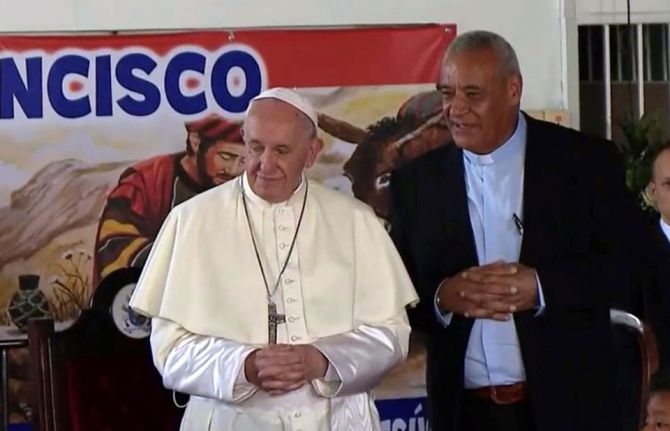
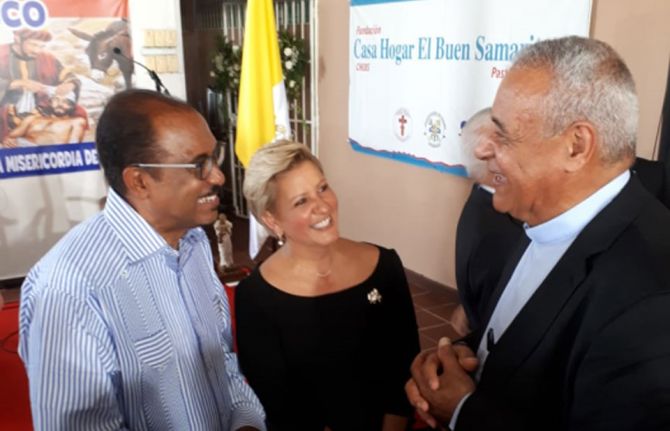
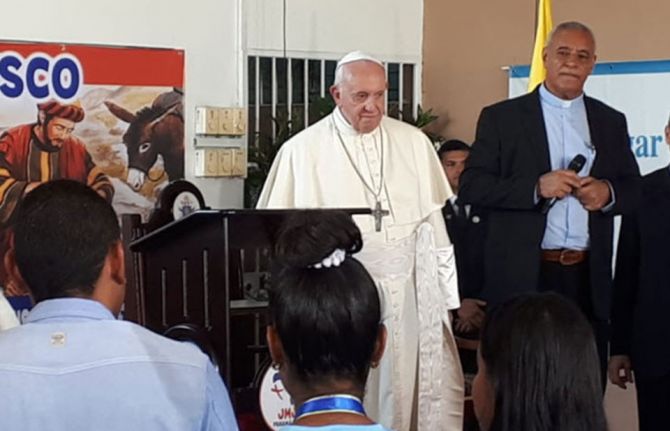
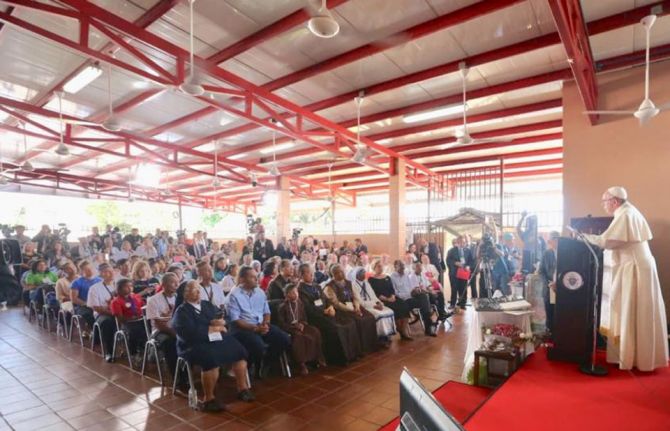
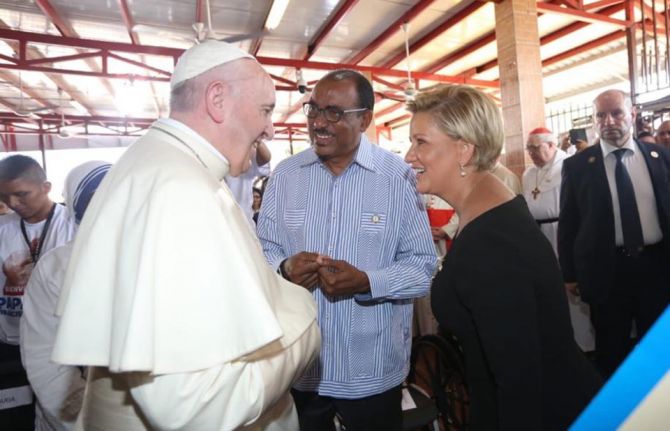
Feature Story
Shelter founder reflects on 15 years of combining HIV treatment, care and prevention with faith
27 January 2019
27 January 2019 27 January 2019On the final morning of the 2019 World Youth Day Commemorations in Panama, Pope Francis will visit the Casa Hogar del Buen Samaritano. Named for the Biblical parable of the Good Samaritan, this shelter on the outskirts of Panama City offers comprehensive care to help people living with HIV recover and reintegrate into society.
Their only requirement for entry is need. As a policy, the home welcomes people regardless of sex, age, religion, occupation, sexual orientation, ability or geographical origin.
As volunteers zipped back and forth in feverish preparation for His Holiness yesterday, Buen Samaritano founder and Director, Father Domingo Escobar, took a moment to reflect on the evolution of the home.
It had begun as pastoral work carried out from the Parish of Santa Maria del Camino. People living with HIV—many of them homeless—would look to the church for comfort, counsel and food. The idea began to crystallize that the most marginalized needed more structured support. The Buen Samaritano Foundation and Home were founded 15 years ago with the broader vision of helping build a society free from discrimination, prejudice and stigmatization.
“I believe that it is necessary to highlight the dignity of the human being and to respect the other person, considering that we are all—as the Bible says—the Temple of the Holy Spirit… each one of us,” Father Escobar explained.
Since its inception, the Buen Samaritano has served more than 300 residents. The combination of spiritual care with medical treatment is key. By bolstering their faith, patients steadily become more optimistic, more “enthusiastic” about taking their medicines and more confident that their treatment will work. According to the Buen Samaritano Director, the most significant factors undermining people’s treatment adherence are lack of support and fear of prejudice.
“Because of fear of rejection and of discrimination they keep it to themselves and do not share it with family or with others,” he said.
In direct response to this challenge, one branch of the foundation evolved specifically to serve people living with HIV who live with their families but have limited resources. Apart from food and medicines, Buen Samaritano provides sensitization and training for family members, strengthening their ability to provide emotional support for their loved ones.
The foundation has also reached beyond HIV care and treatment to support prevention efforts through seminars and interventions for children, young people including youth at risk, and adults. Last year their prevention programmes reached more than 4500 people. Their Youth Information program promotes “sex education with values” in secondary schools.
UNAIDS has partnered with Buen Samaritano for many years, helping to broker the provision of antiretroviral medicines from the Ministry of Health, as well as partnering around visibility and advocacy.
The work of Father Domingo with underserved people living with HIV in Panama shows the incredible capacity of faith communities to build bridges, not only around treatment and care, but also around eliminating stigma and discrimination and prevention.
The foundation provides a valuable contribution to the community, country and AIDS response. In Panama, an estimated 25 000 people are living with HIV. The country has achieved strong progress related to treatment and reducing mortality. Three-quarters (76%) of diagnosed people in Panama were on treatment by the end of 2017 and there were fewer than 1000 AIDS-related deaths. But with an estimated 1600 new infections that year, the need for strengthened prevention initiatives is clear. For Father Escobar the challenge requires all hands-on deck.
“We must all feel and understand that the task of prevention is a cross-cutting challenge,” the priest explained. “It has to be present in the family, in public policy, in childhood, for the youth and in pastoral work. It is a problem for all, and we can all contribute.”


